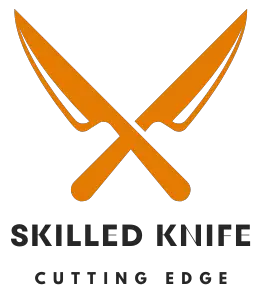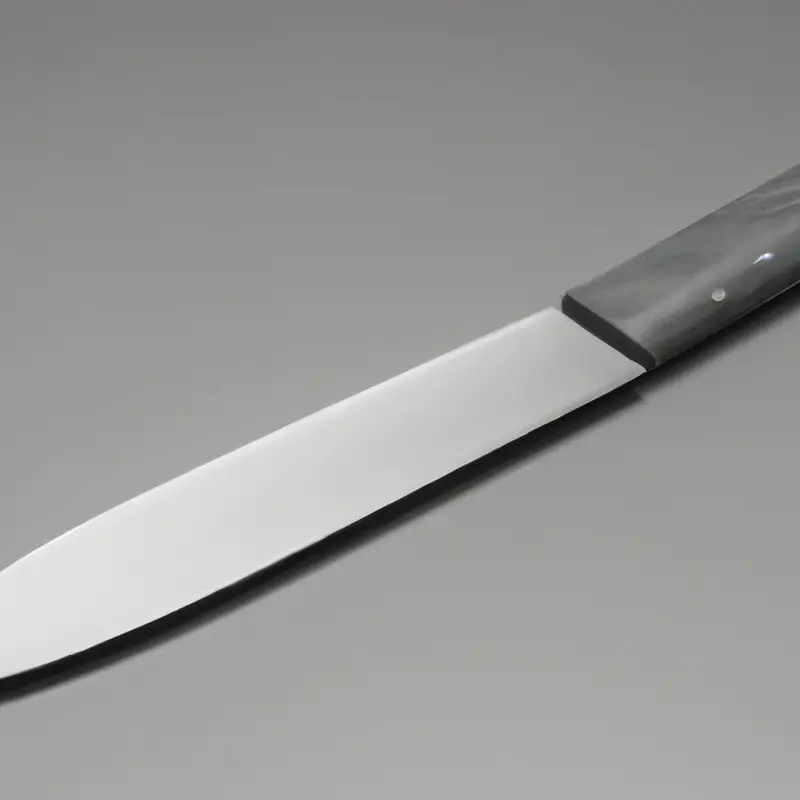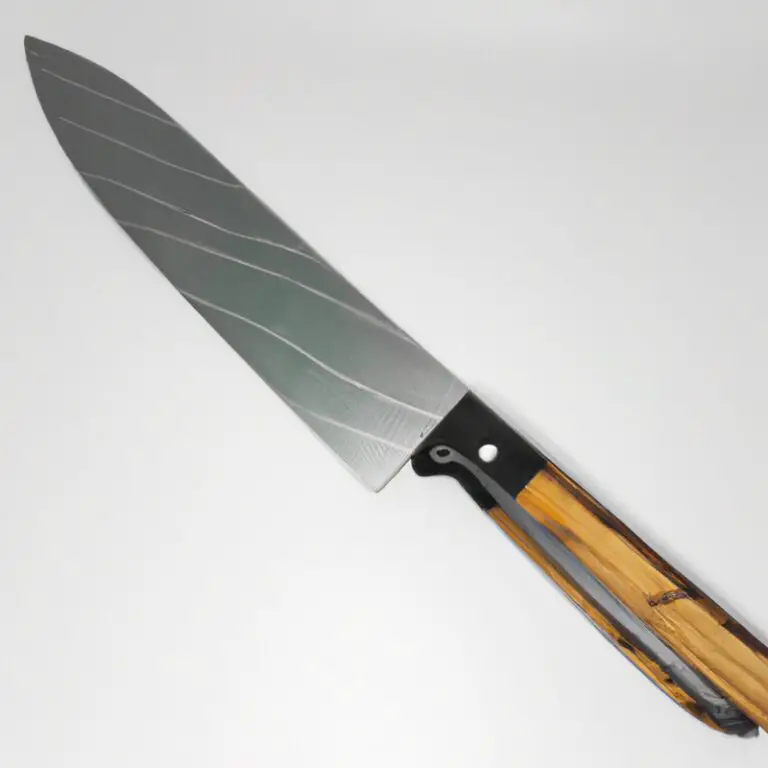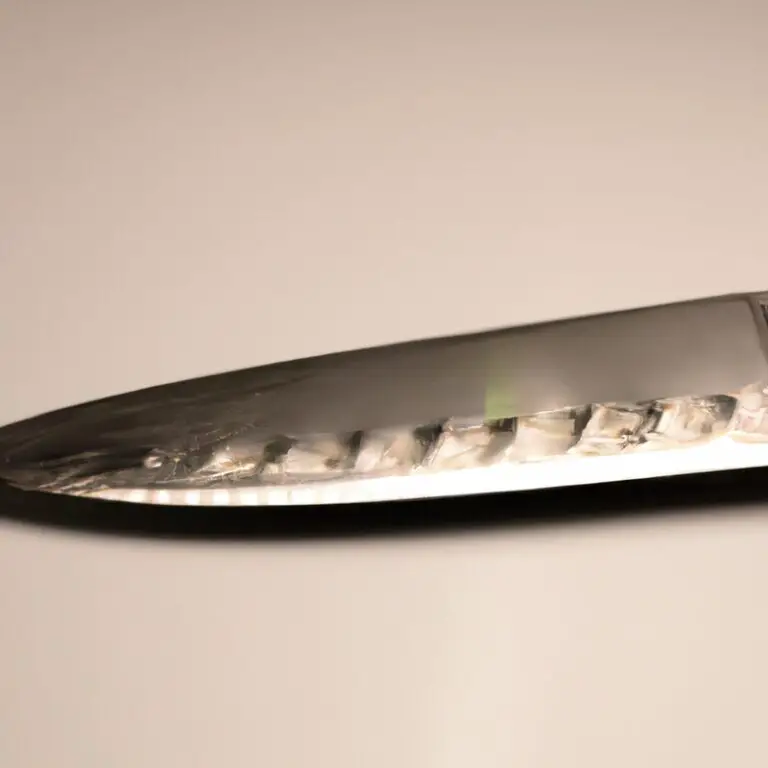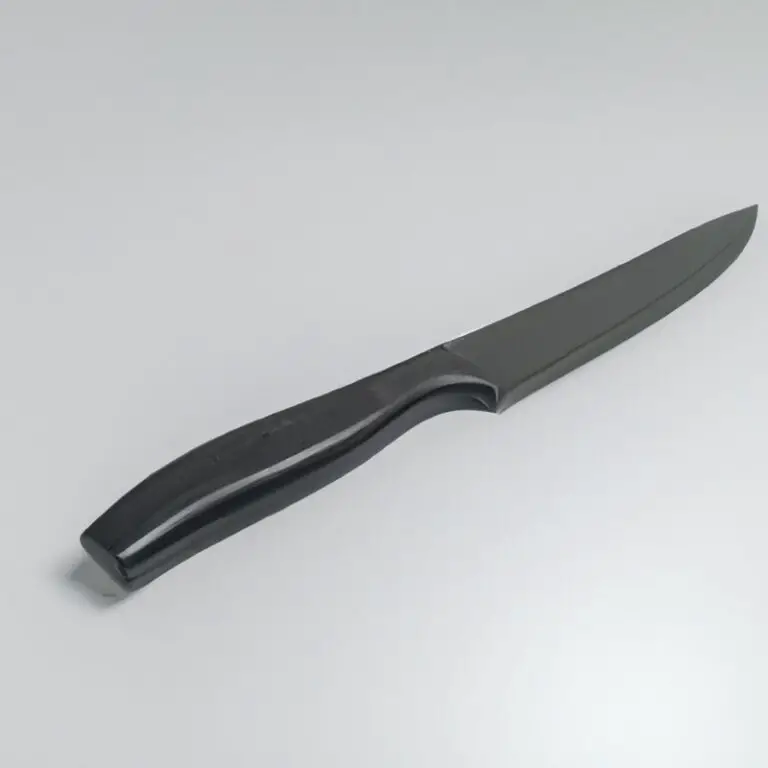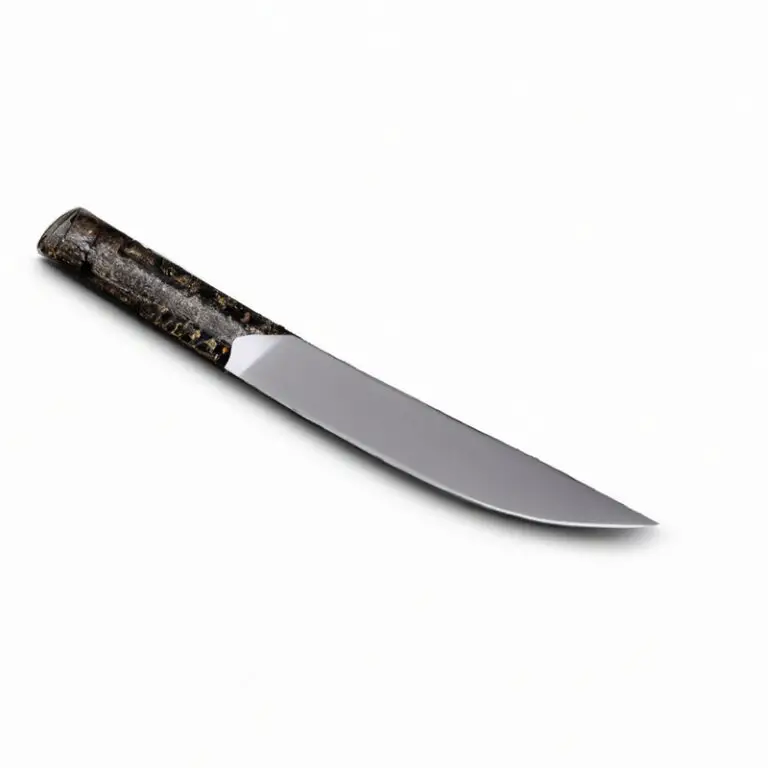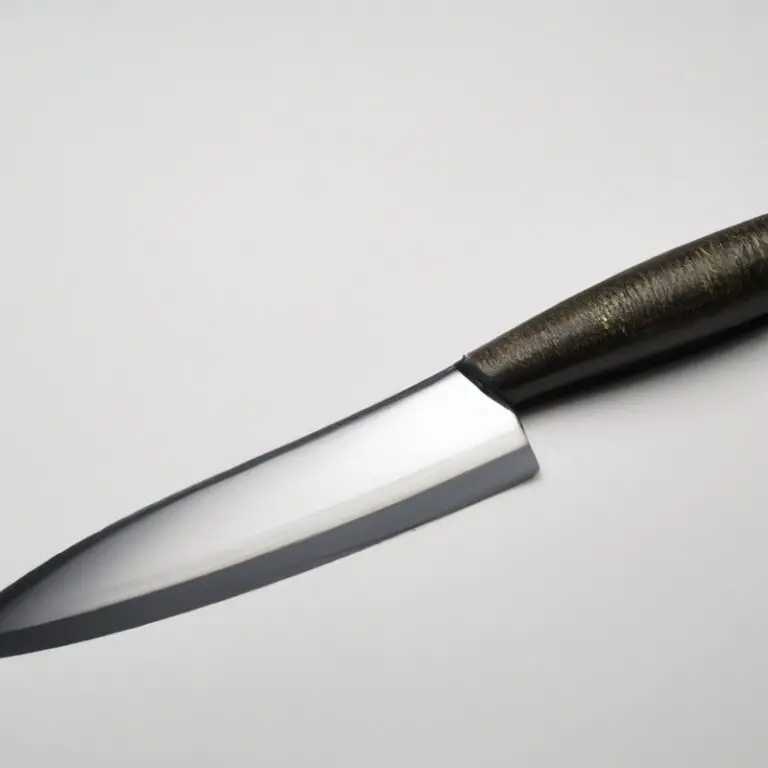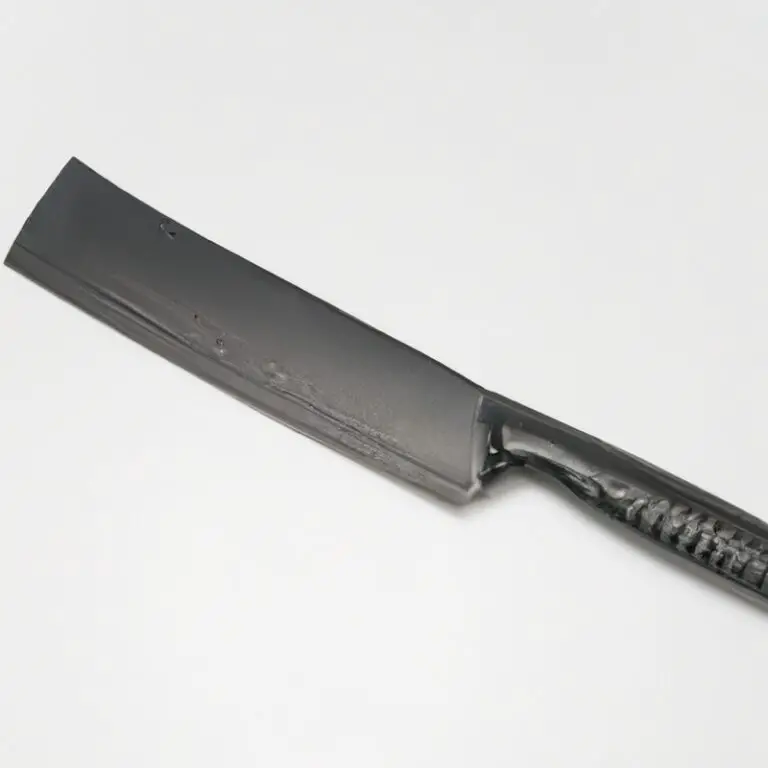What Are The Benefits Of Using a Wooden Cutting Board For Gyuto Knives? Explained
Key Takeaways:
- Wooden cutting boards are gentler on Gyuto knives, preserving their sharpness and extending their lifespan.
- Wooden cutting boards have natural antimicrobial properties, making them a safer and more hygienic option compared to plastic cutting boards.
- Using a wooden cutting board also adds an aesthetic touch to food preparation, elevating the overall presentation of your dishes.
- Overall, investing in a high-quality wooden cutting board can greatly enhance your cooking experience and improve the quality of your meals.
Gyuto knives are a great choice for enthusiasts who value precision, versatility, and style in their kitchen. But have you ever stopped to consider the importance of the cutting board you use with them?
While many materials are available, wooden cutting boards have emerged as the top choice for gyuto knives.
In this article, I’ll explore the benefits of using a wooden cutting board with your gyuto knife. From increased longevity to enhanced performance and style, wooden boards have much to offer.
So let’s dig right in!
| Benefits of Using a Wooden Cutting Board for Gyuto Knives |
|---|
| 1. Reduced Knife Dulling |
| 2. Natural Antibacterial Properties |
| 3. Moisture Retention |
| 4. Better Grip and Stability |
| 5. Eco-Friendly Option |
Wooden Cutting Boards: The Perfect Match for Gyuto Knives
Wooden cutting boards are the ideal match for Gyuto knives for a variety of reasons. They provide excellent support for the sharp blade of the knife, ensuring a smooth and consistent cutting experience.
Wooden cutting boards also help to preserve the lifespan of your Gyuto knife by reducing wear and tear on the blade.
They are hygienic and possess natural anti-bacterial properties that make them perfect for food preparation. The unique texture of wooden cutting boards contributes to the performance of Gyuto knives, making it easier to slice and chop different types of food.
Additionally, wooden cutting boards are environmentally friendly and sustainable, making them the responsible choice for any kitchen.
Regular maintenance is necessary to ensure optimal use of wooden cutting boards with Gyuto knives. By switching to wooden cutting boards, you can maximize the efficiency of your Gyuto knife and enhance the flavor profile of the food you prepare.
Why Wooden Cutting Boards are Recommended for Gyuto Knives
Wooden cutting boards are recommended for Gyuto knives for several reasons. Firstly, they help to increase the lifespan of your Gyuto knife by reducing the amount of stress and wear on the blade.
Additionally, wooden cutting boards have natural anti-bacterial properties that make them more hygienic than plastic or other materials.
Furthermore, the unique texture of wooden cutting boards can contribute to better Gyuto knife performance, as they provide a slightly softer cutting surface that is easier on the blade. They also enhance food preparation by absorbing excess moisture and preventing foods from slipping around during cutting.
Wooden cutting boards are also aesthetically pleasing and are a sustainable choice for the responsible home cook.
Proper care and maintenance can help to ensure their longevity, making them a cost-effective option in the long term. Overall, using a wooden cutting board with your Gyuto knife can provide a superior cutting experience, enhance safety, and even improve the flavor of your prepared dishes.
How Wooden Cutting Boards Can Help to Increase the Lifespan of Your Gyuto Knife
Wooden cutting boards can significantly increase the lifespan of your Gyuto knife. Unlike other surfaces such as glass or metal, wooden boards offer a softer and less damaging surface for the knife blade.
This means that the knife’s edge is less likely to become dull quickly.
Wooden cutting boards also have natural antiseptic properties, making them a more hygienic option than plastic cutting boards. By choosing a wooden board for your Gyuto knife, you can ensure that the knife’s sharpness and effectiveness are maintained for longer.
The Hygienic Advantages of Using Wooden Cutting Boards for Gyuto Knives
Wooden cutting boards offer hygienic advantages compared to other materials when used with Gyuto knives. The porous surface of the wood is less prone to damage from knife cuts, minimizing the risk of bacteria accumulation.
Wood also has natural anti-bacterial properties that help to combat any bacteria that may come into contact with it.
Moreover, studies have shown that wood boards absorb less bacteria than plastic boards, which are more likely to harbor dangerous bacteria even after cleaning. To maintain the hygiene of wooden cutting boards, clean them after each use, and treat them with a food-grade mineral oil regularly.
Using a wooden cutting board with Gyuto knives ensures that the food remains safe and free from harmful bacteria.
The Natural Anti-Bacterial Properties of Wooden Cutting Boards for Gyuto Knives
Wooden cutting boards possess natural anti-bacterial properties, making them an excellent choice for preserving the longevity of your Gyuto knife and ensuring maximum hygiene. Wood fibers contain enzymes that aid in killing bacteria and preventing their growth in the board surface.
In comparison, plastic cutting boards are prone to scratches and grooves that provide ideal spots for bacterial nests to flourish, risking contamination of food.
Using a wooden cutting board also reduces the risk of cross-contamination between raw and cooked foods due to the porous and absorbent nature of the wood fibers that pull bacteria and dirt from the surface of the board, resulting in better sanitation.
The Unique Texture of Wooden Cutting Boards and Their Contribution to Gyuto Knife Performance
The unique texture of wooden cutting boards is an essential factor that contributes to the performance of Gyuto knives. Compared to other materials, wooden cutting boards have a softer surface that allows the knife to grip the board without slipping.
This provides better control and stability while cutting, which is crucial for precision cutting techniques.
The natural texture of wooden cutting boards also reduces the impact of the knife on the board, resulting in less dulling and wear on the blade. Additionally, the fibers of the wood tend to close up after cutting, which helps to reduce the formation of bacteria and prevents the growth of harmful microorganisms.
Furthermore, wooden cutting boards provide a non-abrasive surface that helps to preserve the sharpness of Gyuto knives.
The cushioning action of the cutting board prevents the knife from coming into contact with hard surfaces, which can dull the blade quickly. Overall, the unique texture of wooden cutting boards enhances the performance of Gyuto knives by providing better control, reducing blade wear, minimizing bacterial growth, and preserving sharpness.
A wood cutting board is a must-have for any serious home cook or professional chef who wants to optimize their cutting performance.
How Wooden Cutting Boards Enhance Food Preparation with Gyuto Knives
Wooden cutting boards are the perfect match for Gyuto knives as they enhance food preparation in several ways. The unique texture of wooden cutting boards helps to improve the performance of Gyuto knives by providing a stable cutting surface.
Also, wooden boards naturally absorb some impact from the blade, making it less likely to dull the knife.
Wooden cutting boards have natural anti-bacterial properties, making them a more hygienic alternative to plastic and other materials. These boards are also easy to clean and maintain, contributing to their longevity.
Wooden cutting boards are a great choice for those who prefer a sustainable kitchen as they are biodegradable, renewable, and often sourced responsibly.
Using a wooden cutting board with a Gyuto knife also helps to enhance the flavor profile of foods prepared. The board’s unique texture does not leech chemicals or flavors into the food, unlike other materials.
This means that foods prepared on a wooden cutting board tastes as they should, without any additional flavors or odors.
Overall, using a wooden cutting board with a Gyuto knife is a pivotal choice. These boards provide an optimal cutting surface, enhanced flavor profile, and are a sustainable choice.
With proper maintenance, a wooden cutting board can last for many years and enhance the life of your Gyuto knife.
The Stylistic and Aesthetic Benefits of Using a Wooden Cutting Board with Gyuto Knives
A wooden cutting board adds an immediate stylish flair and rustic charm to your kitchen. The natural grain patterns and warm color of wooden boards bring visual interest to your food preparation area.
Using a wooden cutting board with a Gyuto knife enhances the chef’s experience and promotes beautiful food presentation.
The combination provides an aesthetically pleasing sight which can elevate the overall dining experience. The wooden surface also creates a beautiful backdrop for food photos, enhancing the overall visual appeal of your dish.
In short, using a wooden cutting board with a Gyuto knife creates a stylish and eye-catching kitchen setup that takes meal presentation to another level.
Sustainable Kitchen Habits: Wooden Cutting Boards as the Responsible Choice for Gyuto Knives
Wooden cutting boards offer a sustainable and environmentally friendly alternative to other types of cutting boards. Investing in a wooden cutting board for use with your Gyuto knives is a responsible choice that reduces the amount of waste generated by your kitchen.
Additionally, wooden cutting boards have a longer lifespan than other materials, so you can reduce the number of cutting boards you need to purchase over time.
You can also choose to source your cutting board from sustainably managed forests to minimize the impact on the environment. By opting for a wooden cutting board, you can reduce your carbon footprint and create a more sustainable kitchen for yourself and future generations.
The Right Way to Maintain Wooden Cutting Boards for Optimal Use with Gyuto Knives
To properly maintain your wooden cutting board for optimal use with Gyuto knives, follow these simple steps:
- Wash the board with warm, soapy water after each use and dry it thoroughly.
- Do not soak the board in water or put it in the dishwasher, as this can cause warping and damage.
- Periodically oil the board with food-grade mineral oil to prevent cracking and maintain its natural moisture.
- Avoid using harsh detergents or bleach on the board, as this can damage the wood and affect the flavor of your food.
By following these maintenance tips, you can ensure your wooden cutting board remains in top shape for use with your Gyuto knives.
The Negligible Impact of Wooden Cutting Boards on Gyuto Knife Sharpness
Wooden cutting boards have often been criticized as having a negative impact on knife sharpness. However, studies have shown that for Gyuto knives, this impact is negligible.
In fact, wooden cutting boards are preferred for their natural ability to self-heal, preventing knife marks and damage to the blade.
Additionally, wooden cutting boards are gentle on the blade, reducing the risk of dulling or chipping. As long as the cutting board is kept clean and free of deep gouges, it will not significantly impact the sharpness of a Gyuto knife.
So, using a wooden cutting board with Gyuto knives is not only beneficial for hygiene, but it also helps to maintain the knife’s sharpness and prolong its lifespan.
How Wooden Cutting Boards Provide a Superior Cutting Experience for Gyuto Knives
Wooden cutting boards provide a superior cutting experience for Gyuto knives due to their natural texture and hardness. The unique surface of wooden cutting boards allows the knife to grip the surface, providing a stable and secure cutting surface.
Additionally, wooden cutting boards are less harsh on the blade, preventing premature dulling of the Gyuto knife’s sharp edge.
The wood fibers of the cutting board create a soft cushion that helps maintain the knife’s sharpness. Wooden cutting boards also have natural antibacterial properties that prevent the growth of harmful bacteria, making them hygienic and safe for food preparation.
Overall, the use of wooden cutting boards with Gyuto knives not only enhances performance but also contributes to safer, more hygienic, and sanitary food preparation.
How Wooden Cutting Boards Improve Safety When Using Gyuto Knives
Wooden cutting boards can greatly improve safety when using Gyuto knives. As compared to other materials, wooden cutting boards are more gentle on the blades of Gyuto knives, reducing the risk of slipping, which can cause accidents.
The natural texture of wood provides a grip to the knife’s blade allowing it to slice smoothly through ingredients without slipping or bouncing.
Furthermore, wooden cutting boards are less prone to absorbing the impact force that may otherwise damage the blade or deform the cutting edge. Thus, using a wooden cutting board can significantly reduce the chances of accidents while using a Gyuto knife.
The Significance of Seasoning Your Wooden Cutting Board with Gyuto Knives
Seasoning your wooden cutting board is significant when using Gyuto knives. This process involves rubbing oil into the wood grain to condition and protect it.
Seasoning prevents the board from drying out and becoming too porous, which can lead to bacterial growth and wood damage.
Moreover, it prolongs the lifespan of both the board and knife. Applying oil also imparts a protective layer to the board, preventing food particles from sticking onto its surface.
This, in turn, offers a uniform cutting surface, reducing the likelihood of unnecessary blade dulling.
Overall, seasoning is essential for maintaining the quality of both your Gyuto knife and wooden cutting board, which ultimately results in an efficient and safe food prep experience.
Switching to Wooden Cutting Boards: A Pivotal Decision for Gyuto Knife Enthusiasts
Switching to wooden cutting boards is a pivotal decision for Gyuto knife enthusiasts. Wooden cutting boards are gentle on the knife, reducing wear and tear.
They also help promote hygiene by being less porous than plastic counterparts.
Additionally, the natural anti-bacterial properties of wooden cutting boards make them ideal for use in the kitchen. The unique texture of wooden cutting boards also adds to food preparation by providing better traction for the blade, leading to more precise cuts.
By making the switch to wooden cutting boards, Gyuto knife enthusiasts can enhance their cooking experience while preserving the lifespan of their knives.
The Cost-Effectiveness of Wooden Cutting Boards When Used with Gyuto Knives
Wooden cutting boards are more cost-effective than other materials when used with Gyuto knives. Unlike plastic or glass boards, wooden cutting boards are less likely to dull the blade of the knife quickly, reducing the need for frequent sharpening that can be costly in the long run.
When maintained properly, wooden cutting boards can last for years, making them a worthy investment for any home cook or professional chef.
Additionally, since wooden cutting boards are less likely to harbor harmful bacteria, they can contribute to better food safety, reducing potential medical expenses or lost productivity due to illness. In summary, wooden cutting boards provide a cost-effective solution when used with Gyuto knives, providing durability, food safety, and a long lifespan.
Qualitative Differences Between Wooden Cutting Boards and Other Cutting Surfaces for Gyuto Knives
Wooden cutting boards have qualitative differences from other cutting surfaces for Gyuto knives. Unlike glass, plastic, or metal cutting boards, wooden boards are softer, which helps to preserve the sharpness of Gyuto knives.
Wooden cutting boards also have a unique texture that helps to grip and hold the blade of Gyuto knives, preventing them from sliding around or slipping while in use.
Additionally, wooden cutting boards have natural anti-bacterial properties that inhibit the growth of bacteria, making them a hygienic choice for food preparation. Moreover, wooden cutting boards do not dull the edges of Gyuto knives as quickly as other surfaces, prolonging the life and sharpness of the knife.
Therefore, wooden cutting boards are the optimal choice for Gyuto knives, enhancing their performance and lifespan.
How Wooden Cutting Boards Can Enhance the Flavor Profile of Foods Prepared with Gyuto Knives
The porous nature of wooden cutting boards allows them to absorb some of the juices and oils released by food during preparation. When using a Gyuto knife on a wooden cutting board, the natural oils and juices of the food penetrate the board’s surface, acting as a seasoning agent in subsequent cuts.
This results in a build-up of flavor compounds, enhancing the overall taste profile of food prepared with Gyuto knives.
Additionally, the subtle variations in wood grain texture create a unique cutting experience, which can add depth to the flavor of the food being prepared. Overall, incorporating a wooden cutting board into your kitchen can greatly enhance the flavor of your food when used in conjunction with a Gyuto knife.
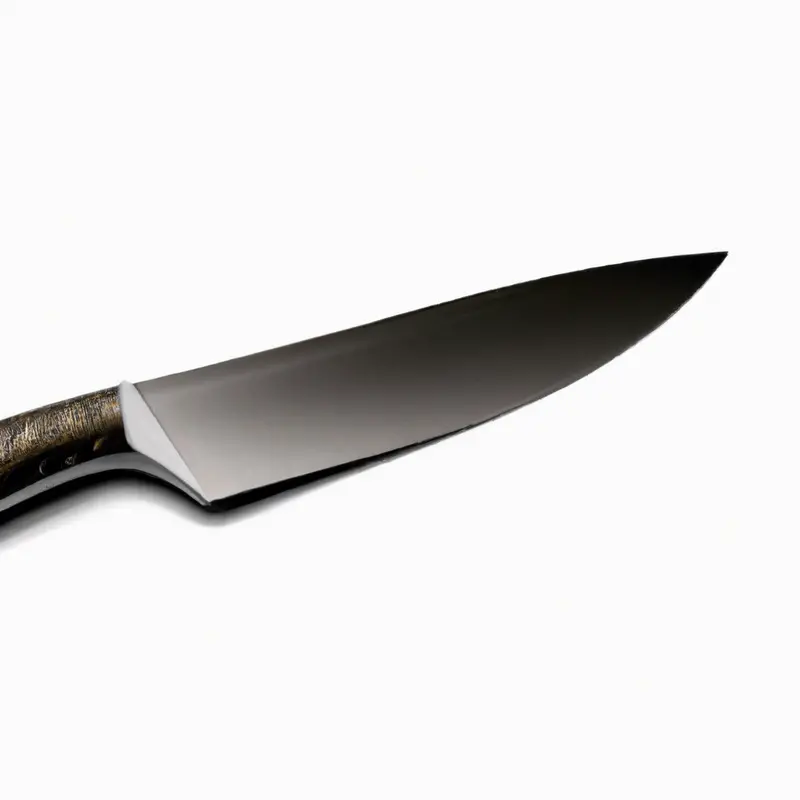
Maximizing Your Gyuto Knife Investment with a Wooden Cutting Board
Using a wooden cutting board can help maximize your investment in a Gyuto knife. The natural fibers of wood offer a softer surface for the blade to impact, reducing wear and tear on the blade.
This can keep your Gyuto knife sharper for longer, ultimately saving you money in the long run by extending its lifespan.
Additionally, wooden cutting boards provide better traction and grip, reducing the likelihood of slips and injuries while using your Gyuto knife. The wood’s natural antibacterial properties also make it a hygienic choice for regular use.
To ensure your wooden cutting board continues to enhance your Gyuto knife’s performance, it’s important to maintain it properly by regularly oiling and resealing the wood.
With proper care, a wooden cutting board can be a worthwhile investment for both your Gyuto knife and your overall cooking experience.
The Complementary Nature of Gyuto Knives and Wooden Cutting Boards for Ultimate Kitchen Performance
Gyuto knives and wooden cutting boards are a match made in culinary heaven. The smooth texture of a wooden cutting board helps reduce the resistance of the knife’s sharp edge, allowing for clean and precise cuts.
Wooden cutting boards also absorb shock and impact, providing a stable surface for the knife while protecting its blade.
Additionally, wood’s natural antibacterial properties prevent cross-contamination and keep the cutting surface hygienic. Combining a quality Gyuto knife with a well-maintained wooden cutting board ensures a superior cutting experience, enhances the flavor profile of foods prepared, and adds an aesthetic touch to your kitchen.
By utilizing this duo together, you can maximize your kitchen performance and create delicious dishes with ease.
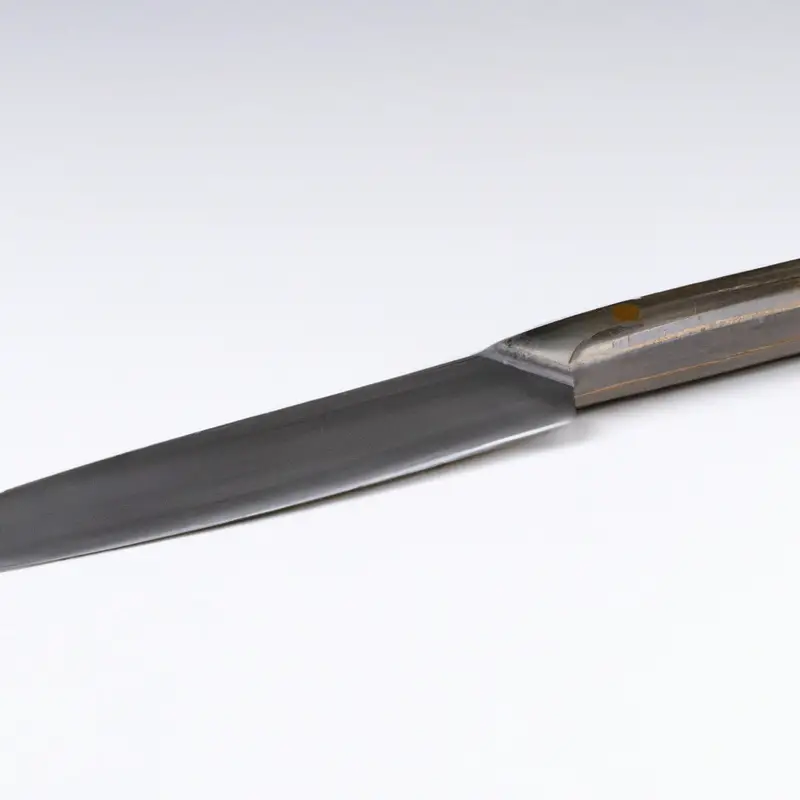
Final Verdict
Using a wooden cutting board with Gyuto knives is not only a stylistic choice but also an essential one for optimal culinary performance. The unique texture of the wood, natural anti-bacterial properties, and minimal impact on knife sharpness make wooden cutting boards the perfect match for Gyuto knives.
By switching to a wooden cutting board, you can enhance the lifespan, safety, and flavor profile of your foods, while also maintaining sustainable kitchen habits.
Overall, a wooden cutting board is a pivotal investment for any Gyuto knife enthusiast wanting to maximize their culinary potential. Trust in the natural reliability and superiority of wooden cutting boards, and elevate your kitchen game today.
